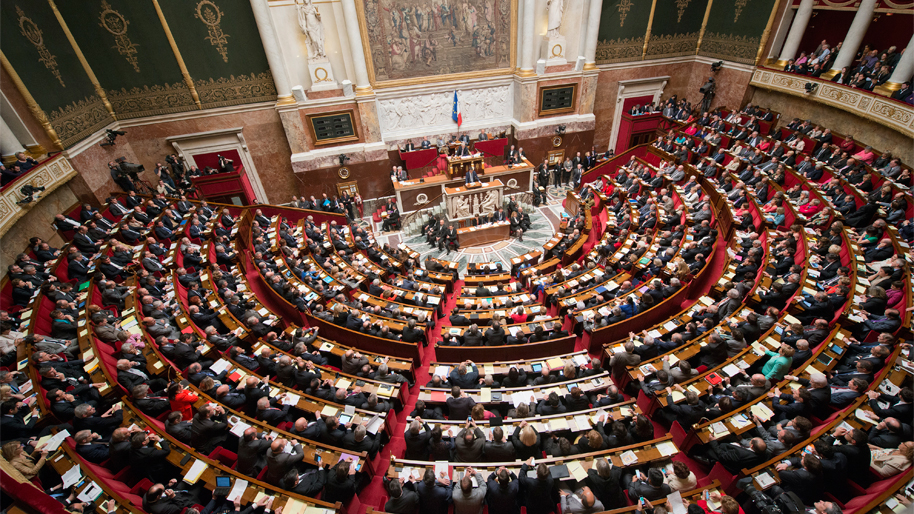- Paris School of Economics, EHESS
- Economie des organisations
- Politiques de la concurrence
- Théorie des contrats et des mécanismes incitatifs
Adresse :48, boulevard Jourdan,
75014 Paris, France
- Directeur de thèse : Jean-Philippe Tropeano
- Année académique d’inscription : 2019/2020
Onglets
I am an Economics Ph.D candidate at the Paris School of Economics (PSE)and École des hautes études en sciences sociales (EHESS). I am working under the supervision of Jean-Philippe Tropeano.
Formerly, I was a student (normalien scholarship) at the Economics and Business Administration Department of Ecole Normale Supérieure Paris-Saclay and the Analysis and Policy in Economics Masters program at PSE.
My research is at the intersection of organizational dynamics and information economics. It examines the role of information asymmetries within and between organizations, utilizing a multidisciplinary approach to address complex issues. Much of my motivation comes from my experience working for the French and European public administrations during my undergraduate studies.
I am currently working on the effects of lobbying on the French lawmaking process, the interplay between communication and incentive constraints in delegation problems, and the role of vertical integration in online platform screening choices.
Please feel free to reach out to me via email or visit my Website: https://grasclement.github.io
Unversité Paris 1 Panthéon Sorbonne. Department of Economics.
- Bachelor’s Degree in Economics
- Mathematics: algebra, matrix calculus and optimization, L2 (General Program, Double Majors and ENS Prep School), Pr. Biagio Speciale.
- Microeconomics: Competitive equilibrium and Market failures, L2 (General Program, Double Majors and ENS Prep School), Pr. Stephane Gauthier.
Former Position:
Sciences Po Paris. Undegraduate College .
- Undergraduate Program – Economy & Society Major
- Microeconomics: Information, Design and Institutions, L2 and undergraduate exchange students (taught in english), Pr. Eduardo Perez.
Working Papers
Hybrid Platform Screening with Guillaume Thebaudin
Abstract
Online marketplaces commonly employ a hybrid business model, wherein they are vertically integrated and sell their own products competing with third-party sellers on their platform. Free entry of these sellers may lead to the presence of harmful and illegal products, which consumers are not able to differentiate from safe ones. We extend the model of Anderson and Bedre-Defolie (2021) allowing the platform to invest in screening of sellers to remove illegal third-party products. We find that seller screening has an ambiguous effect on entry on the platform, and a condition for a platform to engage in screening is that it accommodates entry. Also, we find that more integrated platforms tend to screen less. Moreover, a platform conducting seller screening sets higher commission fees, the level of which can decrease in platform’s degree of vertical integration in contrast with previous literature. From a welfare perspective, platforms invest too little in screening as compared to social optimum, and a regulation mandating higher screening intensity has an ambiguous effect on consumers’ surplus.
> Draft available on request! !

*Presented at internal seminars at Télécom Paris and Paris School of Economics, regulation and environment seminar at Paris School of Economics, EARIE 2023, CRESSE 2023 and AFREN (AFSE 2023)*
Advising Busy Decision Makers: Incentives in Costly Communication Settings
Abstract
We consider a principal-agent setting where perfect information is available yet never desirable. Modeling communication as a channel with an endogenous bit capacity, this article explores how constraints on message sets distort players’ strategies. We prove the existence of an optimal mechanism that leads to the transmission of noisy yet truthful signals that enhance information quality while mitigating costs. The interactions between communication and incentive constraints create a moral hazard problem over the use of the channel. This induces a sub-optimal investment in communication and creates a setting similar to cheap talk with rational inattention when the principal is unable to commit. Our results suggest that simplicity matters more than precision when advising an overloaded decision-maker.
> Draft available on request! !

*Presented at internal seminars at Télécom Paris and Paris School of Economics, IOEA 2022, more presentations to come*
Work in progress
Who lays down the law? Informational lobbying in the French assembly with Rosanne Logeart
Abstract
This article delves into the intricate realm of informational lobbying within the French legislative process, aiming to comprehend its pivotal role. Leveraging a novel dataset compiled from open data originating from the French legislative chambers and the public transparency authority (HATVP), we undertake a meticulous analysis. By matching these datasets, we analyze amendments’ textual content alongside 69,763 declarations of interest representation activity. This approach enables us to uncover the influence of informational lobbying on legislative content and its relative success. We assess how parliamentarians’ resources, past experience, and ideology influence their dependence on lobbying efforts..
> Draft coming soon! !


